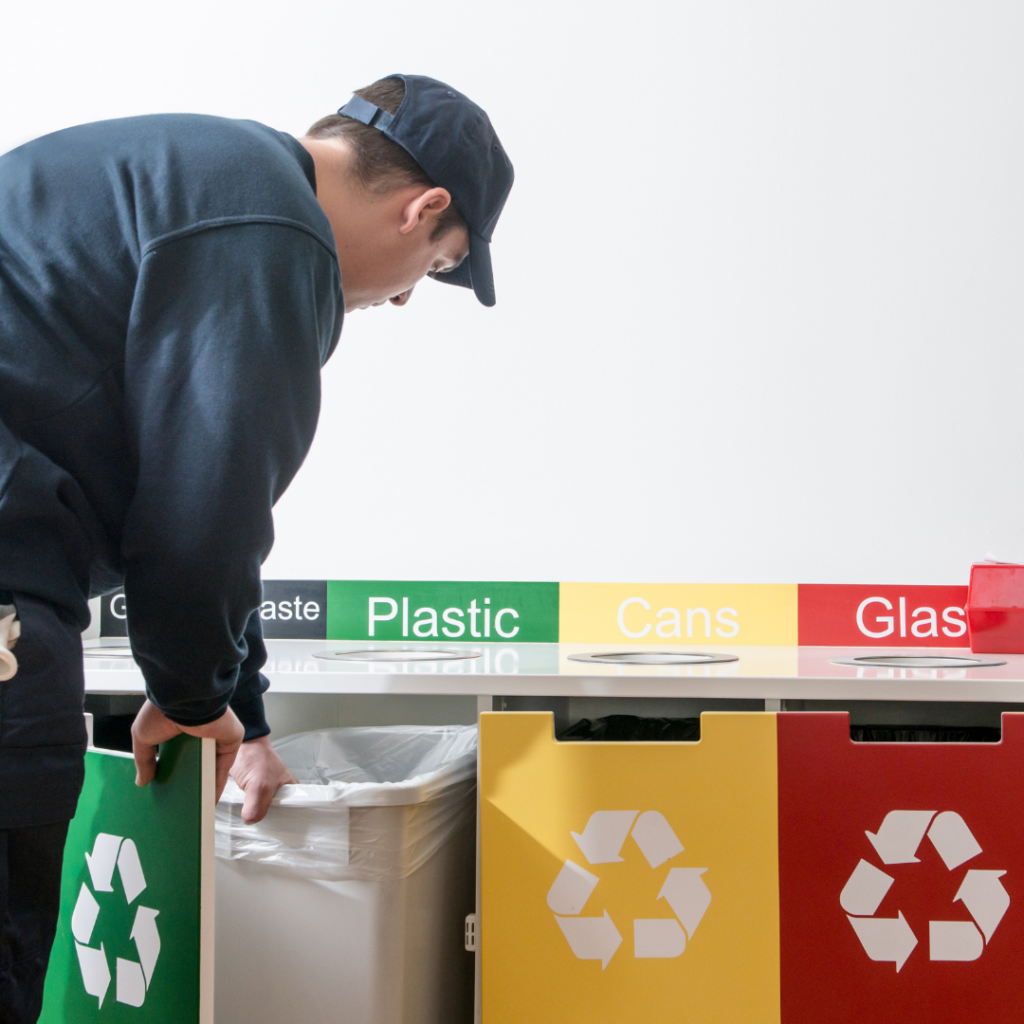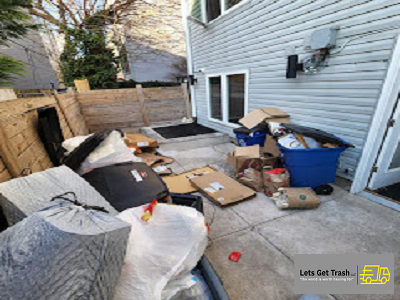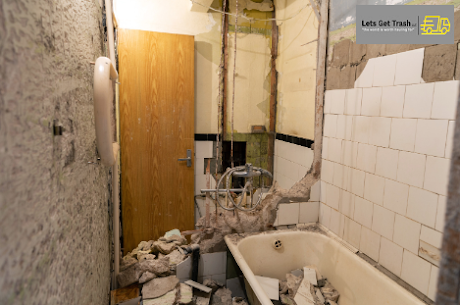Clean and Green Disposal: Building a Cleaner Future
In the wake of escalating environmental concerns, the call for sustainable waste management practices has become more imperative than ever before. “Clean and Green Disposal” represents not just a method of waste management but a holistic approach towards building a cleaner and greener future for generations to come. This article delves into the significance of clean and green disposal methods, the challenges posed by conventional waste management practices, and the innovative solutions paving the way towards a sustainable tomorrow.
The Problem with Conventional Waste Disposal:
Conventional waste disposal methods, such as landfilling and incineration, have long been the primary means of managing municipal solid waste. However, these methods come with significant drawbacks. Landfills, for instance, contribute to soil and water contamination, emit greenhouse gases, and pose risks to public health. Similarly, incineration generates air pollutants and toxic ash residues, exacerbating environmental degradation and public health hazards.
Conventional waste disposal methods, such as landfilling and incineration, present a multitude of environmental, social, and economic challenges that undermine sustainability and jeopardize the well-being of present and future generations.
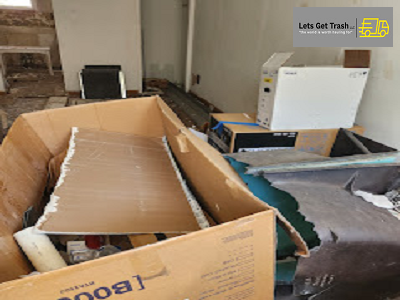
Environmental Degradation:
Landfills, the most common form of waste disposal worldwide, pose significant environmental risks. As organic waste decomposes anaerobically in landfills, methane—a potent greenhouse gas—is released into the atmosphere, exacerbating climate change. Moreover, the leachate produced by decomposing waste contains a toxic cocktail of chemicals, including heavy metals, pathogens, and hazardous pollutants, which can seep into groundwater sources, contaminating soil and water ecosystems.
Similarly, incineration, while reducing the volume of waste, generates air pollutants such as dioxins, furans, and particulate matter, which pose serious health risks to nearby communities and ecosystems. The toxic ash residues left behind after incineration require careful handling and disposal to prevent further environmental contamination.
Public Health Concerns:
Conventional waste disposal methods not only harm the environment but also endanger public health. Landfills emit foul odors and noxious gases, which can cause respiratory problems, headaches, and nausea among nearby residents. Furthermore, the proliferation of disease vectors, such as rodents and insects, in landfill sites poses additional health risks to surrounding communities.
Incineration facilities emit a cocktail of air pollutants, including heavy metals, volatile organic compounds (VOCs), and fine particulate matter, which can trigger respiratory illnesses, cardiovascular diseases, and even cancer in humans. Vulnerable populations, such as children, the elderly, and individuals with pre-existing health conditions, are particularly susceptible to the adverse health effects of incinerator emissions.
Resource Depletion:
Conventional waste disposal methods perpetuate a linear “take-make-dispose” model of consumption, wherein valuable resources are extracted from the earth, processed into goods, and ultimately discarded as waste. This unsustainable approach depletes finite natural resources, increases energy consumption, and exacerbates environmental degradation.
Landfills bury valuable materials such as metals, plastics, and paper, which could otherwise be recycled or repurposed, leading to resource wastage and economic inefficiency. Incineration, while reducing the volume of waste, destroys valuable resources and energy embodied in discarded materials, further exacerbating resource depletion and environmental degradation.
Economic Costs:
The economic costs associated with conventional waste disposal methods are substantial and often overlooked. Landfilling requires significant land acquisition, site preparation, and ongoing maintenance, imposing financial burdens on local governments and taxpayers. Moreover, the long-term environmental and public health impacts of landfills, such as groundwater contamination and air pollution, can result in costly remediation efforts and legal liabilities.
Incineration, despite its potential for energy recovery, entails high capital costs, operational expenses, and regulatory compliance requirements. The construction and operation of incineration facilities require substantial investments in infrastructure, technology, and emissions control systems, which can strain public budgets and hinder the adoption of more sustainable waste management alternatives.
The Environmental Impact:
The environmental impact of conventional waste disposal cannot be overstated. Landfills release methane, a potent greenhouse gas, into the atmosphere, contributing to climate change and global warming. Moreover, the leachate produced by landfills contains harmful chemicals that can contaminate groundwater sources, endangering both ecosystems and human health. Similarly, incineration releases pollutants such as dioxins, heavy metals, and particulate matter, further compromising air quality and ecosystem integrity.
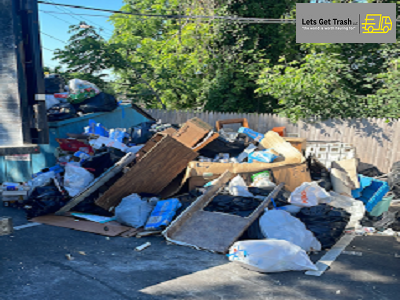
The Urgency for Change:
Given the escalating environmental crises and the finite nature of natural resources, there is an urgent need to transition towards clean and green disposal methods. The linear “take-make-dispose” model of consumption is no longer sustainable in a world grappling with resource depletion and climate change. Instead, a circular economy approach, which emphasizes resource efficiency, waste reduction, and recycling, offers a viable pathway towards a cleaner and greener future.
The imperative for transitioning away from conventional waste disposal methods towards more sustainable alternatives has never been more urgent. The following factors underscore the pressing need for immediate action:
Environmental Crisis:
We are currently facing unprecedented environmental challenges, including climate change, biodiversity loss, and ecosystem degradation. Conventional waste disposal methods exacerbate these crises by contributing to greenhouse gas emissions, soil and water pollution, and habitat destruction. Urgent action is required to mitigate the environmental impact of waste disposal and safeguard the health and integrity of our planet’s ecosystems.
Public Health Threats:
Conventional waste disposal poses significant risks to public health, particularly in communities located near landfill sites and incineration facilities. Exposure to air and water pollutants emitted from landfills and incinerators can lead to respiratory illnesses, cardiovascular diseases, and other adverse health outcomes. As such, protecting public health requires transitioning towards cleaner and less harmful waste management practices.
Resource Scarcity:
The finite nature of natural resources necessitates a shift towards more resource-efficient waste management strategies. Conventional waste disposal methods squander valuable resources that could otherwise be reused, recycled, or repurposed. By adopting circular economy principles, which prioritize resource conservation and waste minimization, we can alleviate pressure on dwindling resources and build a more sustainable future.
Economic Imperatives:
The economic costs associated with conventional waste disposal are substantial and continue to escalate over time. Landfilling and incineration impose financial burdens on governments, businesses, and communities, due to expenses related to waste management infrastructure, environmental remediation, and public health care. Transitioning towards cleaner and greener waste management practices can reduce these economic costs while creating opportunities for innovation, job creation, and economic growth.
Social Responsibility:
As stewards of the planet, we have a moral obligation to protect the environment and ensure the well-being of present and future generations. Conventional waste disposal methods perpetuate environmental injustices by disproportionately impacting marginalized communities and vulnerable populations. By embracing sustainable waste management practices, we can promote environmental equity, social justice, and community resilience.
Regulatory Pressures:
Governments around the world are increasingly recognizing the need to address the environmental and public health impacts of waste disposal through regulatory measures and policy interventions. Stringent regulations, such as landfill bans, waste diversion targets, and emissions standards, are driving the adoption of cleaner and greener waste management technologies and practices. Compliance with these regulations requires proactive efforts to transition towards more sustainable waste management solutions.
By embracing innovation, collaboration, and collective action, we can transition towards cleaner and greener waste disposal methods that promote environmental sustainability, protect public health, conserve resources, and foster equitable and resilient communities. The time to act is now to build a cleaner, healthier, and more sustainable future for all.
The Shift Towards Sustainable Solutions:
Fortunately, there has been a growing momentum towards adopting sustainable waste management practices worldwide. Recycling, for instance, plays a pivotal role in diverting waste from landfills and conserving valuable resources. By reprocessing materials such as paper, plastics, glass, and metals, recycling reduces the need for virgin raw materials, conserves energy, and mitigates environmental pollution.
Furthermore, composting represents a natural and eco-friendly method of managing organic waste. Through composting, organic matter is decomposed into nutrient-rich soil amendments, which can be utilized to enrich soil fertility and support sustainable agriculture. Composting not only diverts organic waste from landfills but also helps mitigate greenhouse gas emissions by reducing methane production.
Innovative Technologies Driving Change:
In addition to traditional waste management approaches, innovative technologies are revolutionizing the field of clean and green disposal. Advanced recycling technologies, such as pyrolysis and anaerobic digestion, offer promising solutions for converting various types of waste into valuable resources, including biofuels, biogas, and organic fertilizers. These technologies not only minimize waste generation but also contribute to renewable energy production and resource recovery.
Furthermore, the advent of smart waste management systems, powered by Internet of Things (IoT) technology and data analytics, enables real-time monitoring of waste generation, collection, and disposal processes. By optimizing route planning, bin allocation, and waste sorting, smart waste management systems enhance operational efficiency, reduce environmental impact, and promote resource conservation.
Community Engagement and Education:
Central to the success of clean and green disposal initiatives is community engagement and education. Public awareness campaigns, educational programs, and participatory initiatives can empower individuals and communities to adopt sustainable waste management practices in their daily lives. By promoting waste reduction, segregation, and recycling behaviors, communities can collectively contribute to building a cleaner and greener future.
Policy Support and Regulatory Frameworks:
Moreover, supportive policy frameworks and regulatory measures are essential for incentivizing the transition towards clean and green disposal methods. Governments can implement measures such as extended producer responsibility (EPR), landfill taxes, and recycling mandates to encourage waste reduction, recycling, and resource recovery. By aligning economic incentives with environmental objectives, policymakers can foster a conducive environment for sustainable waste management practices to thrive.
Conclusion:
Clean and green disposal represents a paradigm shift towards sustainable waste management practices that prioritize environmental protection, resource conservation, and public health. By transitioning away from conventional waste disposal methods and embracing recycling, composting, and innovative technologies, we can mitigate environmental pollution, reduce greenhouse gas emissions, and build a cleaner and greener future for generations to come. However, achieving this vision requires collective action, policy support, and ongoing commitment from individuals, communities, businesses, and governments alike. Only by working together can we realize the promise of clean and green disposal and pave the way towards a more sustainable tomorrow. Contact us today to learn more about how you can be a part of this transformative journey towards a cleaner, healthier planet.


